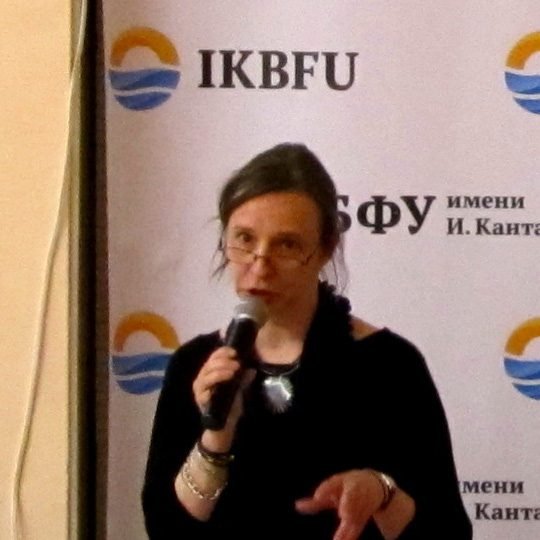Ineta Balode: The Intellectual Relationship between Königsberg and the Baltic Region in the 18th century.
Johann Gotthelf Lindner und Jacob Lange as Examples of this Relationship in the Field of Language.
The second part of the 18th century is known as a very lively and productive period in the history of the Baltic region. A lot of impulses for the intellectual activities are coming from East Prussia, particularly from the University of Königsberg.
My examination of two different lexicographic works – a collection of Baltic-German words by Lindner and a bilingual dictionary (Latvian-German and German-Latvian Lexicon) by Lange –aims to show how the linguistic pieces of evidence give us indications for the assumption that the Enlightenment in the Baltic region might have various forms and modifications. The conclusions are based on the hypothesis that the different biographies, including different interests, intellectual orientation and professional targets of both authors, have had relevant influence on the lexicographical results.
The Enlightenment-related activities in the Baltic region were concentrated mostly around the cities with their infrastructure (schools, libraries, societies) and implemented with the help of friends and interestgroups. There were two basic principles of their intellectual orientation – the Western European discourses und cosmopolitism on the one hand, the regional specifics and needs on the other hand. In both situations trans-regional contacts and friendship played a relevant role in the activities of the involved scholars.
The examination of the results of the two lexicographical works reveals that Lange’s aim has been to discuss the Latvian language and support the Enlightenment process through explanation of lexical elements thus supporting the communication process between Germans and Latvians. The comparison of entries allows us to presume that some kind of Latvian vocabulary-list (with semantic and encyclopaedic explanations) has served as the basis of the bilingual dictionary (definitions instead of German equivalents testify to this).
Lindner does not show special interest in the Latvian or Estonian language. He aims only to show the regional peculiarities of the German language, to guarantee their understanding and to give non-regional High German equivalents. On the other hand, he makes comparison with lexical phenomena in East Prussia and in other German regional varieties and quotes appropriate lexicographical references. His work reflects activities of the German Societies (Deutsche Gesellschaften).
However, there is some relationship between both lexicographical works, namely, forty Baltic-German vocabulary items are identical in both works. It means that 21% of the 224 lexicographical items found in Lindner’s work are included in Lange’s dictionary. Both authors have put into practice some linguistic targets of the 18th century by collecting data and documenting the linguistic environment. The recipients of the results of this description are the recent German settlers in the Baltic region. But since both scholars treat Latvian as the contact language differently, it can be concluded that Lindner and Lange belong to two different scholarly circles representing and implementing Enlightenment in the Balt.
© Ineta Balode

